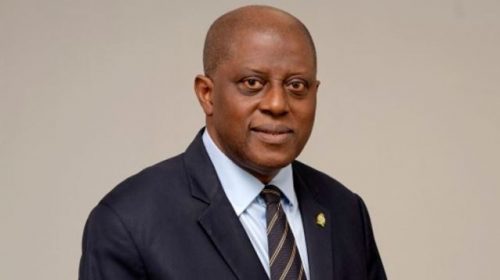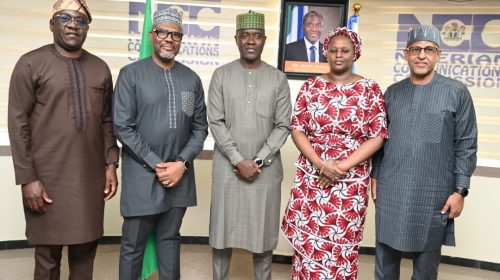Nigeria Losses $9.1bn Freight Revenue To Foreign Shipping Lines Annually — Shippers Council

By Ngozi Onyeakusi — Nigeria Shippers Council (NSC) at the weekend regret that Nigeria was losing $9.1billion annually on freight revenue that would have accrued to its treasury, to foreign ships.
Speaking on feasibility of the proposed National Carrier, Mr Hassan Bello, Executive Secretary, Bello, said in Lagos that foreign shipping lines were milking the country dry.
“We need to have national carrier because of the profound economic impact it will have on our economy. We have lost so much in terms of earnings of freight to foreign shipping companies.
“Nigerians don’t operate any ship at all that is on the part of the dry cargo. On the wet cargo, Nigerians don’t lift the crude and the Minister of Transportation, Rotimi Amaechi thought that this imbalance is very dangerous to the economy.
“So he set up a committee with the Nigeria Shippers Council as chairman to lead the private sector and we started working with PIL which is a Singaporean shipping company.
“We signed an MOU with it about three years back but the operating atmosphere of shipping in Nigeria is murky and not profitable because there are many obstacles which include lack of incentives.
There are also lack of government infrastructure and government support.
”Fourthly, unwillingness or inability of Nigeria’s private sector to support this very important enterprise is another issue,” Bello said.
Bello said that the committee for the national fleet implementation had to go back to look at it closely. “We have now retraced our steps”.
”The national fleet is such an important venture that it has to be painstakingly done. We are talking about one or two-year project,” he said.
He added that “what we have done was because the government is very serious about the economy, we were able to approach and get the audience of the Vice-President and we addressed the Economic Management Team on the vision.
This project, if we get it right, it means much more earnings for freight.
“Each year, we lose 9.1billion dollars in freight to foreign ships.
”Between 2004 and 2017, Nigeria recorded total vessel traffic of 25,256 vessels with the total gross freight of $39 billion and earning a paltry sum of $1 billion as levy for NIMASA.
“It means greater revenue for the government, employment for our people. It means setting up of associated industries, ship building, ship repairs, involvement of our financial institutions like banks and insurance, even the pride of having ships flying the Nigerian flags”.
He said there were lots of reforms to be made and they include the flag administration and the ship registry of Nigeria.
”Both had to be reformed in line with international standard so that we could attract people to come and register ships in Nigeria.
”We need a vessel repairs and vessel building so that we don’t tow our ships to Singapore or Ghana for repairs. That will be a drain on the business.
”We need a reform of our nautical colleges, MAN Oron especially, so that they would produce the best of cadets so that cadets produced would have sea time experience, using Nigerian ships.
“If we have investments and we are able to establish the fleet, that means NIMASA will accord that fleet the status of national carrier.
”And if this is done, it means that they will have first priority in cargo; project cargos, Nigerian cargo, cargo belonging to federal, state and LGAs,” he said. (NAN)
Section:







Leave a Reply